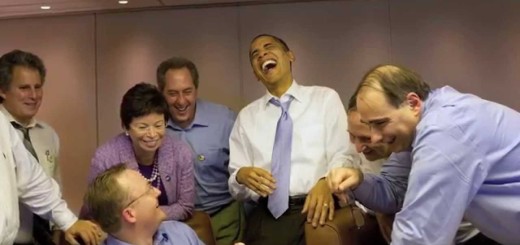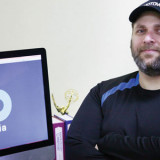EXCLUSIVE: Interview With Iranian Convert to Judaism
 As the events of the past few months have demonstrated, anti-Semitism hasn’t gone away. In fact, it’s getting stronger. While many Jews prefer to hide their identity for fear of persecution, some people are ready to sacrifice everything they hold dear in order to become Jewish.
As the events of the past few months have demonstrated, anti-Semitism hasn’t gone away. In fact, it’s getting stronger. While many Jews prefer to hide their identity for fear of persecution, some people are ready to sacrifice everything they hold dear in order to become Jewish.
Israel Today spoke to one such person, a young Iranian woman living in Germany who fell in love with Judaism and Israel. Her real name cannot be revealed for security reasons.
Israel Today: You were born a Shia Muslim. How is it that you fell in love with Judaism and Israel?
Tannaz: I was born in Tehran back in the 1980s to Muslim parents, though they never saw themselves as such. With the eruption of the Islamic Revolution in 1979 life became very difficult for them. My father, who’s an intellectual, felt particularly in danger given the fact that the new regime of the ayatollahs didn’t tolerate people like him. Witnessing public punishments, tortures, blood and executions, my parents didn’t want their kids to grow up in an Islamic state that radiated fear. That’s why they decided to flee to Germany, hoping that one day – when the Islamic clerics are toppled – they will come back to Iran. This, however, hasn’t happened.
Even though I totally integrated into German society and identify myself as German, I never felt truly connected to this new home, although I am very grateful to this country for giving me and my family much needed shelter. I started looking for my real identity.
IT: And you found it in Judaism, even though it’s so unpopular to be Jewish nowadays?
Tannaz: I was never taught to hate the Jewish people or Israel, the opposite is true. My father has always told me stories about his Jewish friends that he left in Iran.
IT: But to actually become a Jew?
Tannaz: It was only the beginning of the process. My love for Israel intensified the more I learnt about this country. Six years ago, when I was still attending college, a friend of mine who was doing research about Israel invited me to visit the country and I couldn’t resist the temptation. But I was in for a bumpy ride because the moment I landed at Ben Gurion airport, I was taken in for questioning that lasted eight hours. The officer, who checked my German passport, noticed that I was born in Tehran and was convinced that I was working for the Iranian intelligence service.
IT: How did you go through this humiliation?
Tannaz: It was a very traumatic experience and at some point I called the German embassy in Tel Aviv and begged them to get me out of this horrible country. But that nightmare left me curious and I made up my mind to come back and explore Israel. This time around I applied for various internship programs, hoping that they would give me a glimpse of Israel. Ironically enough, the only internship program that agreed to take me in was a Palestinian NGO.
IT: So instead of exploring Israel, you ended up exploring the West Bank?
Tannaz: Correct. I stayed with a Palestinian family from Jerusalem and got very influenced by their powerful propaganda machine. I have to admit that for two years I was on their side. But that was also because I didn’t have the chance to “enter” Israeli society and to interact with Israelis.
IT: How did that change?
Tannaz: I have always been a thinking person. I never swallowed everything the media or the people around me were trying to feed me. I was extremely irritated by the fact that every time Palestinians would speak about Israelis, they would use the word “Jews”. It hurt me to hear that, simply because I was brought up in Germany where people are taught to remember the Holocaust. At some point I realized that I was tired of the Palestinian stance: the constant whining and pinning the blame on everyone but themselves. I was tired of their negative approach. At the same time, I was afraid to talk to Israelis, thinking they would push me away because of my origin.
I overcame this obstacle only in 2012, when a group of peace activists launched the famous campaign Israel Loves Iran. Shortly after, Israelis started adding me as a friend on Facebook and several of them have even invited me over.
IT: What was the most striking revelation for you when you got to know Israelis?
Tannaz: That they are so much like Persians: they have the Middle Eastern flair but they are modern and open minded. I realized that Israel is the place I wanted to be.
IT: Was it at this time that you decided to convert?
Tannaz: I can’t put my finger on when exactly it happened but that was definitely before anyone told me that the process of conversion would be such a nightmare [laughing]. I made up my mind that I wanted to convert while I was on a trip outside of Germany but the moment I came back to the country I was paralyzed by fear.
IT: What kind of thoughts were running through your mind?
Tannaz: I was afraid to go through the process of conversion and immigration and end up having no decent job in Israel. This would mean that I would need to go back to Germany and live there as a Jewish woman, which often means that I would have to hide my real identity. But I didn’t want to live in a lie.
IT: Is it that scary to be Jewish in Germany?
Tannaz: Anti-Semitism is definitely on the rise in Europe. It got particularly fierce last summer during Israel’s Operation Protective Edge. But apart from this, a lot of Europeans feel that they are losing their identity and that their countries no longer belong to them. Only recently thousands took to the streets to vent anger at Muslim immigrants, who – as they see it – don’t integrate into their society, but the truth is that the Jewish people are also on their target list. They might use their anti-Islamic stance as a cover, in a bid to gain more supporters, but their ideology goes against everything non-German.
IT: In your opinion, what’s the root of this anti-Semitic sentiment?
Tannaz: It is natural for people to sympathize with the weak, the underdog. Palestinians are winning the media war because they successfully managed to create the image of the oppressed people. Unfortunately, many people in the West don’t have the time or the energy to understand the conflict, to dig and ask inconvenient questions, so they end up relying on media, which is largely biased.
IT: Where do you currently stand with the process of your conversion?
Tannaz: I am struggling with my dilemma but if (or when) I convert, I will make sure to keep it as a secret from my family in Iran whose lives would be endangered.
PHOTO: Illustrative only.









